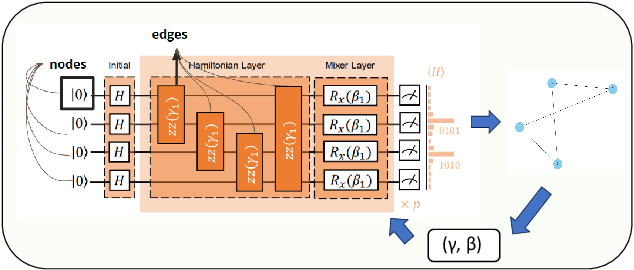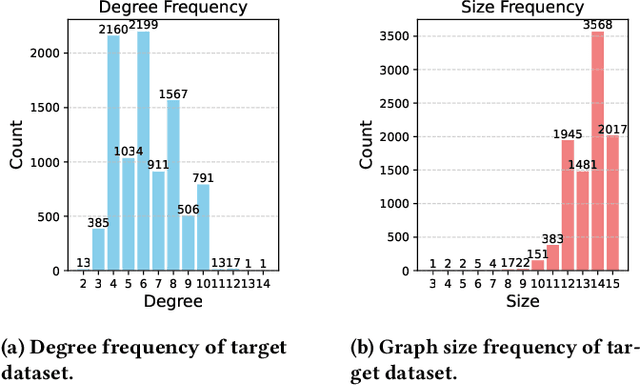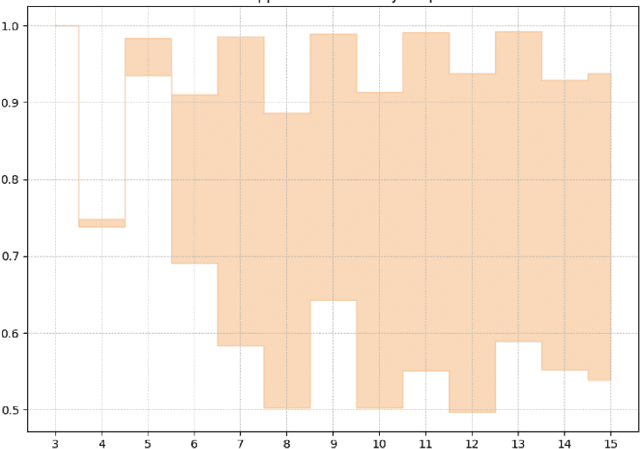Fanny Ye
Graph Learning for Parameter Prediction of Quantum Approximate Optimization Algorithm
Mar 05, 2024



Abstract:In recent years, quantum computing has emerged as a transformative force in the field of combinatorial optimization, offering novel approaches to tackling complex problems that have long challenged classical computational methods. Among these, the Quantum Approximate Optimization Algorithm (QAOA) stands out for its potential to efficiently solve the Max-Cut problem, a quintessential example of combinatorial optimization. However, practical application faces challenges due to current limitations on quantum computational resource. Our work optimizes QAOA initialization, using Graph Neural Networks (GNN) as a warm-start technique. This sacrifices affordable computational resource on classical computer to reduce quantum computational resource overhead, enhancing QAOA's effectiveness. Experiments with various GNN architectures demonstrate the adaptability and stability of our framework, highlighting the synergy between quantum algorithms and machine learning. Our findings show GNN's potential in improving QAOA performance, opening new avenues for hybrid quantum-classical approaches in quantum computing and contributing to practical applications.
 Add to Chrome
Add to Chrome Add to Firefox
Add to Firefox Add to Edge
Add to Edge